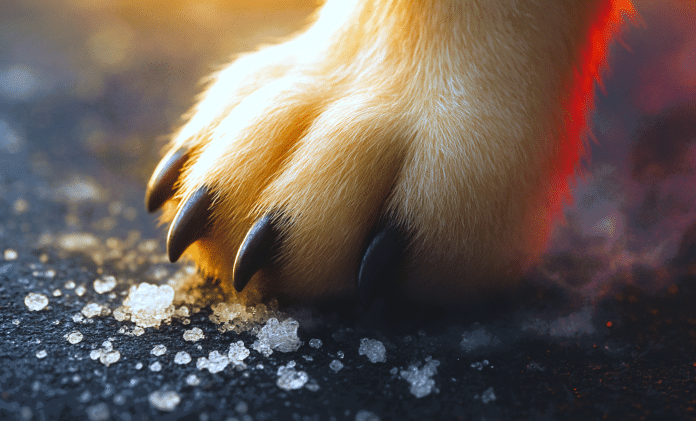Hartford, CT – With the first winter snows expected across Connecticut this weekend, veterinarians are warning pet owners to watch out for an often-overlooked seasonal hazard: road salt and chemical de-icers. The same products that keep sidewalks and streets ice-free can burn paw pads, irritate skin, and even cause salt poisoning if pets lick or ingest them after walks.
Most road salts contain sodium chloride, calcium chloride, or magnesium chloride, all of which can dry out and crack the paw pads of dogs and cats. Once the irritation begins, animals often lick their paws to relieve the pain, leading to ingestion of toxic substances. Even small amounts of salt can cause vomiting, diarrhea, excessive thirst, and lethargy, while larger exposures can lead to seizures or kidney damage.
Some de-icing products also contain heavy metals or industrial byproducts, compounding the risk. Repeated exposure throughout the winter can result in lasting paw injuries or long-term health effects.
Veterinarians recommend several easy steps to prevent injury: rinse your pet’s paws with warm water after every walk, dry them thoroughly, and apply protective paw balm or wax before heading outdoors. Keeping the fur between your dog’s toes trimmed will reduce salt buildup, and booties can provide added protection for pets that tolerate them. At home, use chloride-free, pet-safe ice melt products to keep driveways and entryways safe without harming pets.
With freezing temperatures and snow treatments expected statewide through early next week, pet safety advocates urge owners to stay alert for signs of limping, paw licking, or reluctance to walk on salted areas.
As Connecticut braces for its first taste of winter, experts remind residents that the most dangerous part of the season for pets may not be the snow itself—but the chemicals used to clear it.





